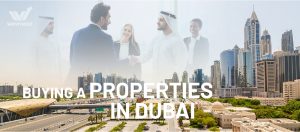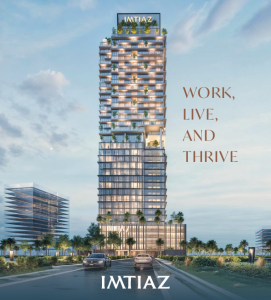To attract foreign investment, promote trade, and attract high-quality labor, the Gulf countries have all improved their institutions in an open and friendly manner to foreigners, including allowing the purchase and ownership of real estate.
Discussing this issue, we would like to introduce an article by Dr. Lawyer Doan Van Binh – Vice President of the Vietnam Real Estate Association (VNREA) on the strategy for foreigners approved by the real estate agencies of the Gulf and lessons learned for Vietnam.
“At the end of the FIABCI World Leaders’ Summit in Riyadh, we had a tour of the Gulf region to Saudi Arabia, Jordan, Bahrain, Qatar and the United Arab Emirates (UAE).
It is easy to see that the entire region has a very developed infrastructure thanks to oil finance, natural conditions suitable for construction and the vision of the governments of the Kingdoms. Highways, seaports, bullet trains, metros, large, modern airports, solar energy and seawater treatment into fresh water are all very complete.
The countries are all connected to each other, bringing benefits to the whole region. Qatar has invested 200 billion USD to complete the infrastructure before the World Cup. The world’s two leading airlines, Emirates and Qatar Airways, and two equally famous airlines, Ethihad Aiways and Gulf Air, from the three countries of the UAE, Qatar and Bahrain are regional air links and connecting the region to the world. Bahrain is a small archipelago but has invested over 850 million USD to build a 25 km long sea bridge called King Fahd Causeway connecting to Saudi Arabia. Bahrain and Qatar are implementing a project to build a 100 km long sea bridge connecting the two countries to promote trade.
Gulf countries are actively transforming their economies to reduce dependence on oil. Services are one of the priority sectors. Services require a lot of human resources. With a small population and high income, the majority of people here do not want to do “black collar” jobs. Therefore, human resources in Gulf countries are very scarce.
60% of Saudi Arabia’s workforce is imported from Indonesia, India, the Philippines, Bangladesh, Pakistan, and Nepal. The Vietnamese Ambassador shared with us that there are currently over 4,000 Vietnamese people working here. Many of them work as domestic helpers and are paid the highest salaries in this profession. To solve this problem, governments of all countries encourage their citizens to have many children, loosen labor and immigration policies. The shortage of human resources in countries such as Bahrain, Qatar and the UAE is similar and all import labor from Asian countries as mentioned above.
To attract foreign investment, promote trade, and attract high-quality labor, countries have improved their institutions in an open and friendly manner towards foreigners, including allowing them to buy and own real estate.
Oman, Jordan, and Bahrain all allow foreigners to buy and own houses and land in certain areas, especially in the high-end segment. Bahrain opens up for foreigners to buy and own in Hoora, Abu Ghazal (Manama), Al Fateh District (Juffair), Diplomatic Quarter, Reef Island and Seef. Saudi Arabia is also urgently amending the law to allow foreigners to own real estate in some areas including the $1 trillion NEOM mega-project and its component projects such as the Line mega-city.
From 2020, Qatar will allow foreigners to buy and own real estate (villas, apartments), hotels, offices and other commercial buildings in 9 areas: West Bay Lagoon, The Pearl Qatar, Al Khor Resort, Rawdat Al Jahaniyah, Al Qassar, Al Dafna, Onaiza, Al Wasail, Al Kharij, Jabal Theyleeb. At the same time, Qatar also allows foreigners to choose to lease real estate for 99 years and renew for the next 99 years in 16 other areas: Mshereib, Fereej Abdul Aziz, Al Doha Aljadeeda, Old Al Ghanim, Al Rufaa & Old Al Hitmi, Al Salata, Fereej Bin Mahmoud, Fereej Bin Mahmoud, Rawdat Al Khail, Al Mansoura & Fereej Bin Durham, Najma, Um Ghuwailina, Al Khulaifat, Al Sadd, Al Mirqab Al Jadeed & Fereej Al Nasr and the international airport area in the capital Doha.

Qatar has issued a policy of classifying investors. The first-class group is the group of investors who buy real estate worth from 3,650,000 Qatari riyals (about 1 million USD). This group will be granted permanent residency and enjoy medical, educational and investment services with the condition of staying in Qatar for 90 consecutive days per year or intermittently.
The second group is the group that invests from 730,000 QAR (150,000 USD). This group will be granted residency with the condition of staying in Qatar for 90 consecutive days. The Qatari government aims to expand and diversify the real estate market in this country.
The third group is the group that invests less than group 2. This group will not be granted residency.
Thus, Qatar only encourages foreigners to invest in high-end real estate to attract the rich to this country.
The procedure for foreigners to own real estate is simple, requiring only: Certificate of ownership; Copy of Citizen ID/Passport and Certificate of good conduct (similar to a criminal record). The Qatari Ministry of Justice has built a platform on www.moj.gov.qa to guide and handle procedures openly and transparently.
Foreigners flock to Dubai to buy and own real estate so much that the real estate market here has increased 2.5 times in just the past 5 years. Foreigners who buy real estate have the opportunity to be granted a Golden Visa from 2 to 10 years. The UAE’s policy for foreigners to buy and own real estate is very flexible.
Workers from some Middle Eastern countries such as Saudi Arabia, Oman, Bahrain, Kuwait and Qatar have the right to buy and own real estate like citizens. Foreigners from other countries are only allowed to buy and own real estate in free-hold zones. The capital Abu Dhabi has 9 free-hold zones. Dubai has 50 free-hold zones, including the Palm Tree and World Map mega-projects. In addition to these special zones, foreigners are only allowed to lease buildings on land for 50 to 99 years.
The UAE does not tax real estate, including rental income. Investors only have to pay 2-4% tax when buying and selling real estate. This tax is also usually divided 50-50 between the seller and the buyer.
Real estate prices in Dubai are about 10% higher than in the capital Abu Dhabi. The average price of 1m2 of an apartment is about 2,500 to 3,500 USD. Each apartment ranges from 300,000 to 500,000 USD. Each villa costs from 600,000 USD or more. Except for Dubai Marina, Burj Khalifa and Palm Jumeirah, which are very expensive, from over 6,500 USD/m2. In the first two quarters of 2023, the number of apartments sold was 5 times higher than the number of villas, equivalent to 23,244 units and 4,808 units.
Vietnam is perfecting its institutions in the direction of balancing management and development creation. The revised Housing Law and Real Estate Business Law have been passed by the National Assembly. The Land Law is continuing to be considered for approval in the latest session. I think that the policies and laws of the Gulf countries – countries that “don’t need money”, allow foreigners to buy and own real estate as a solution to transform the economy, attract tourism, attract investment, expand and diversify the real estate market. The proactive, controlled open institutions and flexible ways of serving the development of these countries are useful references for Vietnam.”




